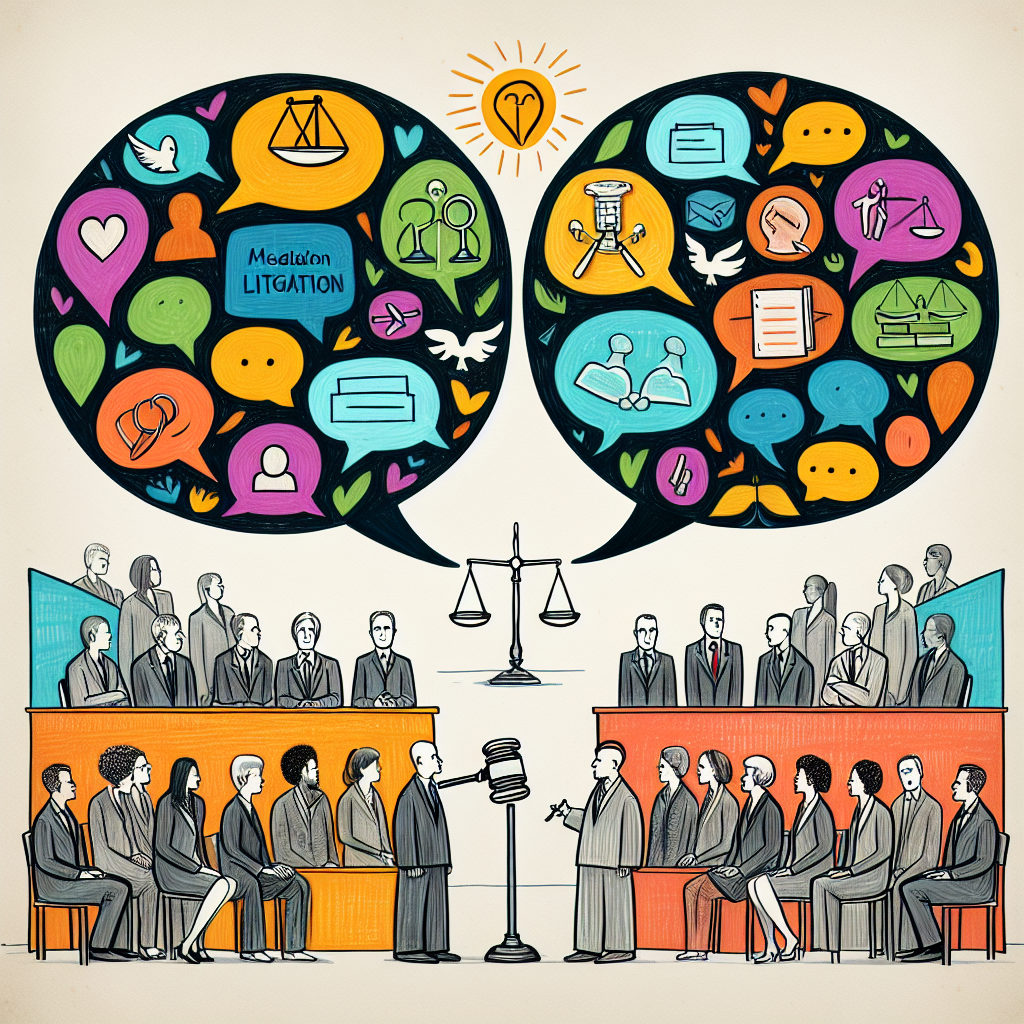The Role of Communication in Mediation vs. Litigation

Mastering Communication in Conflict Resolution
Introduction
In any conflict or dispute, effective communication is key to finding a resolution. This is especially true in legal settings, where mediation and litigation are commonly used methods of conflict resolution. While both approaches have their own unique processes and techniques, a common factor in both is the role of communication. In this article, we will explore the importance of communication in both mediation and litigation, and how it can impact the outcome of a dispute.
Understanding Conflict Resolution
Before we delve into the role of communication in mediation and litigation, it is important to have a basic understanding of the two processes. Mediation is a form of alternative dispute resolution (ADR) that involves a neutral third party, the mediator, who helps the parties in conflict come to a mutually acceptable resolution. Litigation, on the other hand, is a legal process that involves presenting a case in court and having a judge or jury make a decision. Both processes have their own advantages and disadvantages, but the common goal is to resolve the conflict in a fair and efficient manner.
Importance of Communication in Conflict Resolution
Effective communication is crucial in any conflict resolution process as it helps to identify and address the underlying issues and concerns of all parties involved. In mediation and litigation, communication plays an even more important role as it can determine whether a resolution can be reached or not. Without clear and effective communication, misunderstandings and misinterpretations can occur, leading to further conflicts and hindering the resolution process.
Effective Communication Techniques
To ensure effective communication in both mediation and litigation, there are certain techniques that can be employed by all parties involved. These include active listening, nonverbal communication, and the use of empathy.
Active Listening in Conflict Resolution
In any conflict, it is important for all parties to actively listen to each other. This means truly paying attention to what the other person is saying, without interrupting or formulating a response in one’s mind. In mediation, the mediator can help facilitate active listening by encouraging each party to express their thoughts and feelings without interruption. In litigation, lawyers can ensure active listening by questioning witnesses and allowing them to fully answer without interruption or leading the conversation.
Nonverbal Communication in Conflict Resolution
Nonverbal communication, such as body language and tone of voice, can also play a significant role in conflict resolution. In mediation, the mediator can observe and address any negative nonverbal cues, such as crossed arms or a dismissive tone, which can hinder effective communication. In litigation, lawyers can also pay attention to nonverbal cues from witnesses and address any potential issues that may arise.
Using Empathy to Resolve Conflicts
Empathy, the ability to understand and share the feelings of another, is a powerful tool in conflict resolution. By putting oneself in the other person’s shoes, it becomes easier to see the conflict from their perspective and find common ground. In mediation, the mediator can help parties develop empathy by encouraging them to express their feelings and perspectives, and by highlighting similarities between the parties’ positions. In litigation, lawyers can use empathy to better understand their clients’ needs and effectively convey this to the opposing party.
Conflict Resolution in the Workplace
Effective communication is crucial for conflict resolution in the workplace, where conflicts may arise between employees, managers, or even between a company and its clients. In these situations, communication techniques such as active listening, nonverbal communication, and empathy can be useful in finding a resolution. Additionally, having a clear and thorough communication policy in place can help prevent conflicts from escalating and provide a framework for resolving them in a timely and efficient manner.
Conflict Resolution in Personal Relationships
Communication is also vital in resolving conflicts in personal relationships, such as between family members, friends, or romantic partners. In these situations, emotions may run high, making effective communication even more challenging. However, by using techniques such as active listening, nonverbal communication, and empathy, parties can better understand each other’s perspectives and find a solution that is satisfactory to both.
The Power of Communication in Conflict Resolution
Effective communication is crucial in both mediation and litigation as it can determine whether a resolution can be reached or not. By employing techniques such as active listening, nonverbal communication, and empathy, parties can better understand each other and find common ground, leading to a fair and efficient resolution of the conflict. Whether in a legal setting or in personal relationships, the power of communication should never be underestimated in resolving conflicts.



